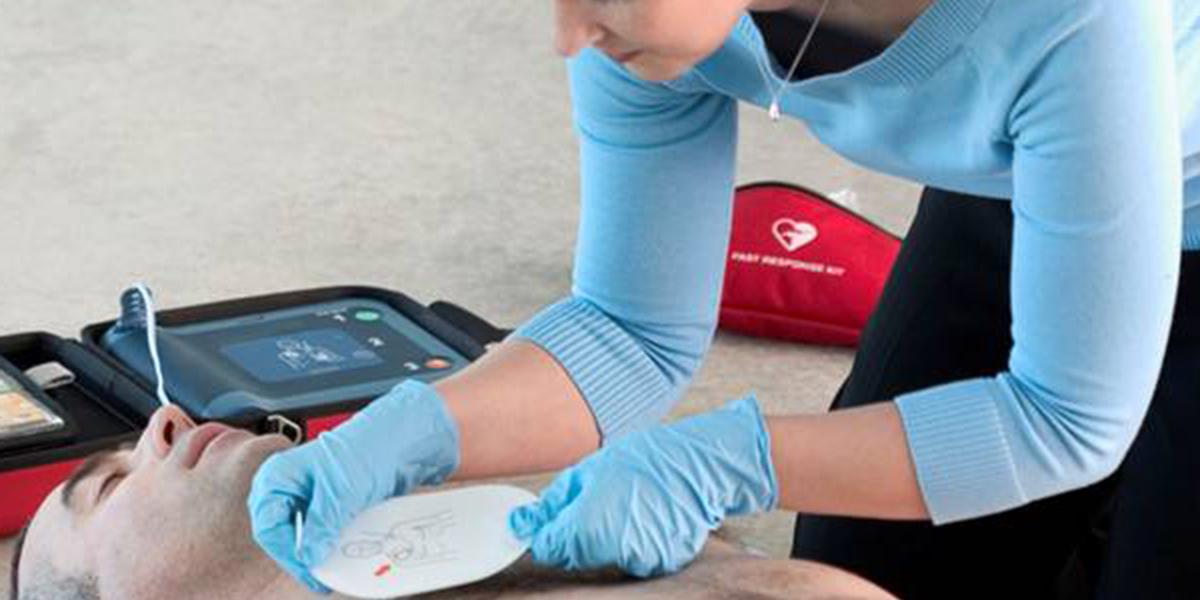A most vital device: what are automated external defibrillators?
- Written by NewsServices.com

Cardiac arrest can occur any time and at any place. In Australia, around 25,000 people each year experience cardiac arrest outside of hospital, and it’s estimated that a tiny five per cent of these people survive to leave the hospital and return to their homes.
With emergency treatment, a victim of cardiac arrest has a much higher chance of survival. By providing victims with CPR and shocks from an automated external defibrillator (AED) the patient’s heart can potentially return to a normal rhythm.
Unfortunately, many out-of-hospital locations don’t have AEDs on-hand. What’s more, the general populous is not aware of their potential lifesaving benefits. Many Australians may be unaware that anyone can use an AED on someone suffering from cardiac arrest - their 000 operator will direct them on how to use it. Automated external defibrillators (AED) such as Zoll Defibrillator, Heartsine Defibrillators are really very easy and convenient to use.
So, with that in mind, let’s talk more about AEDs and how they can potentially save a life outside of the hospital.
What are AEDs?
AEDs are the brightly coloured boxes you see at hospitals, train stations, supermarkets and other places where they might be needed to save a life.
What do AEDs do?
An AED automatically diagnoses if someone is in a shockable heart rhythm. They are programmed to be able to speak to the user and tell them how to use them on someone who is experiencing cardiac arrest.
AEDs do not jump start the heart like you may do with a car battery; they stop the heart so that the individual heart cells can recharge simultaneously. The pacemaker in the heart will hopefully then restart at a normal rhythm.
AEDs administer a shock that will stop the heart if it is in abnormal but shockable rhythm. The AED will hopefully enable the heart’s own system to restart its sinus rhythm - it’s normal beat. AEDs are crucial when providing public medical attention to someone who is suffering from cardiac arrest and are used in conjunction with CPR to stabilise the victim.
Where are AEDs located?
AEDs are found anywhere that large numbers of crowds may gather as these are areas with a higher risk of someone experiencing cardiac arrest. You may find an AED at a train station, shopping centre, GP/dental practices, leisure centres, sports grounds, universities and wherever else there are larger numbers of people at any time. AEDs are either semi-automatic (you have to press a shock button when told) or fully automatic (the machine provides an automatic shock when advised to shock).
AEDs work in conjunction with apps
Today, there are apps that tell people where the nearest AED is located in case of an emergency. These apps will tell you exactly where an AED is so that you don’t have to go looking for one when time is so critical.
Why do we need AEDs?
AEDs are imperative to treating someone experiencing cardiac arrest in a public place - they could even be the difference between stabilising them or not. CPR, which works alongside an AED, helps circulate the blood, keeping the brain and heart sufficiently oxygenated. The AED is vital for delivering the shock that hopefully normalises the victim’s heart rhythm. Sudden cardiac arrest is typically a result of ventricular fibrillation, an erratic, fast heart rhythm that originates in the ventricles of the heart.
AEDs are only used for someone who is not breathing normally and appears unconscious. AEDs will only provide a shock to be given if someone’s heart is in a shockable rhythm - ventricular tachycardia or ventricular fibrillation. The machine will recognise this health issue and advise whether a shock is truly necessary as you cannot shock someone who does not require one.

















